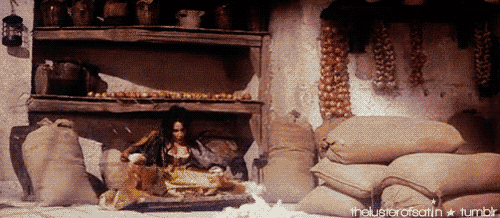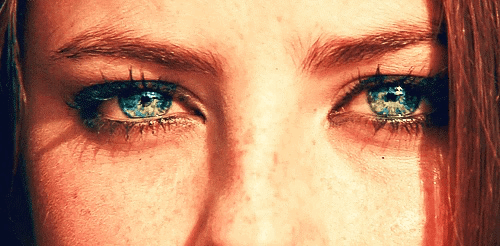It’s pretty hard to escape the words of William Shakespeare, arguably the world’s greatest playwright. You’ve likely studied his work in class or performed in one of his shows.
Despite the great love theatre nerds have for Shakespeare, some find fault with his language, claiming it’s too difficult to understand. In all fairness, some of it is. The guy also created nearly 2,000 new words that we still use in the English language. We use so many words and phrases by him on a daily basis and don’t even realize it.
We’re used to hearing the cliche “To be, or not to be” used without much thought or the classic “Romeo, Romeo, wherefore art thou, Romeo,” but here are 10 words and phrases you might not know came straight from the pen of Shakespeare:
1. “Break the Ice” — “Taming of the Shrew”

Just think icebreakers. Every time you start a new show and need to get to know the cast, the first rehearsal consists of at least three of these. Funnily enough, it pretty much meant the same thing during Shakespeare’s time. Aside from referring to those awkward get-to-know-you games today, back then it also meant to make someone a little less frigid, i.e., Katherine in “Taming of the Shrew.”
2. “Swagger” — “Henry V” and “Midsummer Night’s Dream”

Bet you didn’t know this one had Shakespearean roots! This word was used in such phrases as “What hempen home-spuns have we swaggering here, so near the cradle of the fairy queen?” Yes, it was used a bit differently than it’s used today, but still is all Shakespearean.
3. “Bedazzled” — “The Taming of the Shrew”

Before referring to the trend of putting rhinestones on anything you could get your hands on, this word was used by Shakespeare to describe the sun. Featured in such lines as, “Pardon, old father, my mistaking eyes, that have been so bedazzled with the sun that everything I look on seemeth green,” the word had a much nicer meaning a few hundred years ago.
4. “Come What May” — ”Macbeth”
Though you may think “Moulin Rouge” helped catapult this saying to popularity, Shakespeare is the one to thank for this saying. When Shakespeare used it in “Macbeth,” it went a little something like, “Come what come may, time and the hour run through the roughest day.” Try putting that into song.
5. “Love Is Blind” — “The Merchant of Venice”
One of the most overused romantic sayings in history, this phrase first sprung up in “The Merchant of Venice.” Shakespeare wrote, “But love is blind, and lovers cannot see the petty follies that themselves commit, for if they could Cupid himself would blush to see me thus transformèd to a boy.” This one has pretty much kept its meaning through the years.
6. “Rant” — “Hamlet”

Is anyone surprised Shakespeare is responsible for coining this word? Though the first recorded use of this word was in Shakespeare’s “Merry Wives of Windsor,” it seems more appropriate to use this line from “Hamlet”: “I’ll rant as well as thou.” Like his creator, Hamlet was not very brief.
7. “Green-Eyed Monster” — “Othello”
Responsible for coining “green-eyed” in “Merchant of Venice,” Shakespeare took it a step further in “Othello” with “O, beware, my lord, of jealousy; it is the green-eyed monster.”
8. “Not Slept a Wink” — “Cymbeline”

More formally spoken in Shakespeare’s work as, “I have not slept one wink,” this one is pretty self-explanatory and is used pretty much the same way today. Whether it be the night before a big audition or all of tech week, this saying is extremely applicable to theatre nerds.
9. “Eyeball” — “The Tempest”

You probably thought this one was created by some physician a couple hundred years ago, but credit goes to Shakespeare yet again. The use of this word has not changed since the late 1500s: “Go make thyself like a nymph o’ the sea: be subject to no sight but thine and mine, invisible to every eyeball else.”
10. “What’s Done Is Done” — “Macbeth”

First used in “Macbeth,” the title character says, “Things without all remedy Should be without regard: what’s done, is done.” Today we use this saying in the same way, though not to refer to a recent murder we’ve committed.






